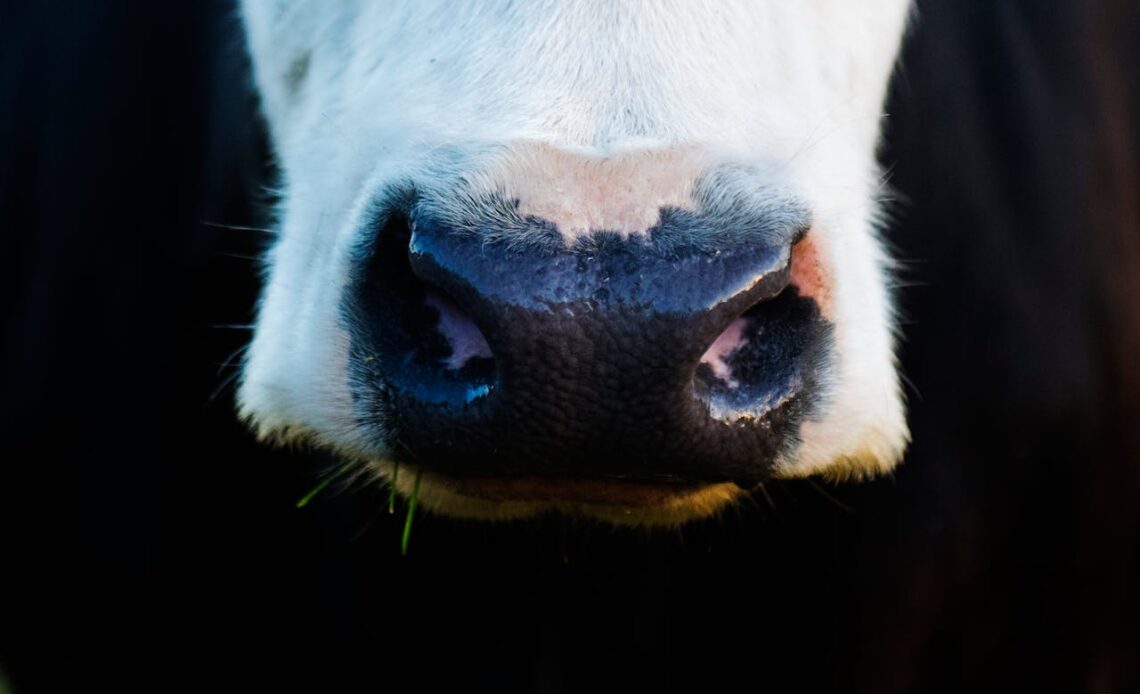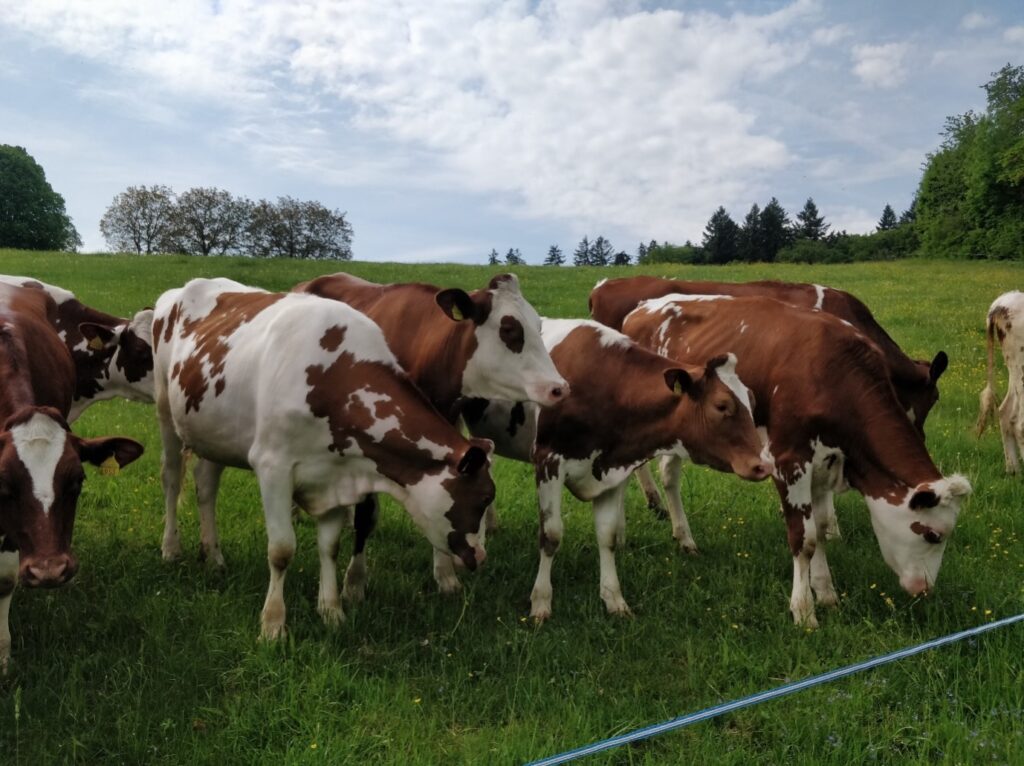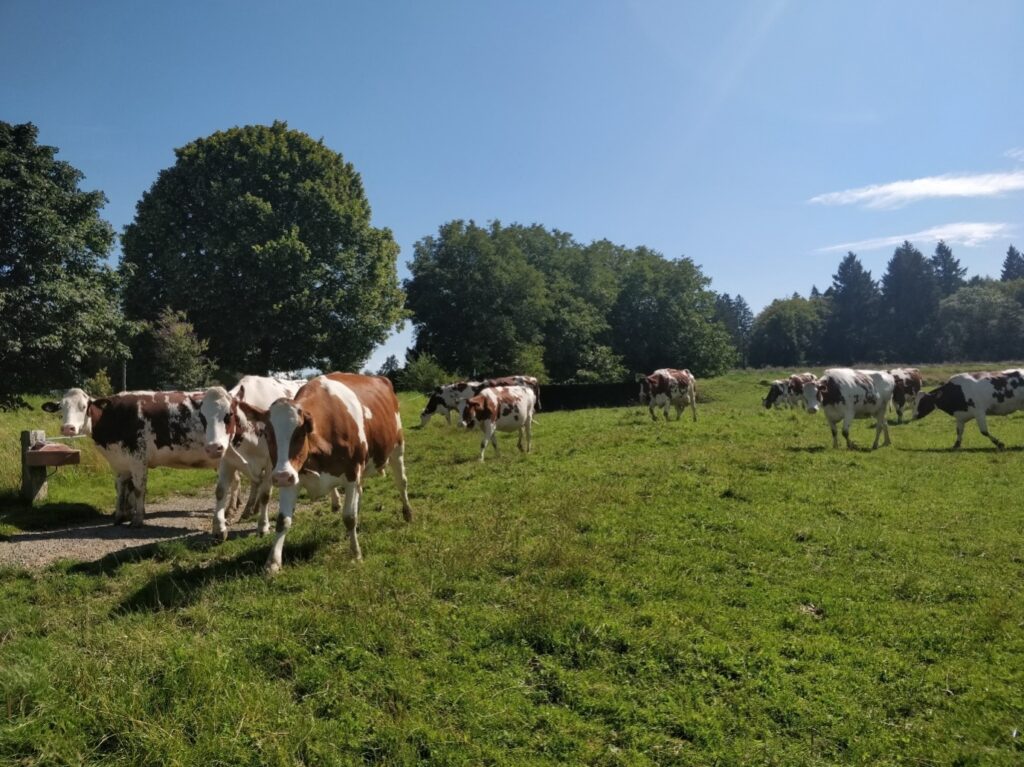
9 AUGUST 2024 | by DIin Sarah-Joe Burn
More than a decade ago, in a tiny village in the Bernese Alps, a girl witnessed the birth of a beautiful little calf for the first time in her life. What she didn’t know at the time: She would never forget that moment. That moment of anxiety and uncertainty. That moment of hope. That moment of new life being born. She would never forget how it felt to dry that tiny creature with straw, to feed it for the first time, to give it a name – her own name.

In that moment, perhaps for the first time, I truly realized my love and passion for these wonderful animals – the cows. Since then, this affection has grown. So strong that it even influenced my career choice. Throughout the years of studying agriculture and even specializing in livestock sciences, this fascination was amplified. The more I studied and worked with these animals, the more I got excited about their biology, their individual characters, their beauty.
But as I learned all these amazing things, like how cows are able to convert grass into milk – how cool is that? – I also soon realized that not everyone is a cow lover like me, especially when it comes to the whole climate change debate. In fact, there is a downside to this grass-digesting superpower or rather a side effect. Like all ruminants, cows do not actually digest these huge piles of cellulose themselves, but they have little helpers in the rumen, also called the microbiome. The microbiome includes also archaea bacteria, some of which are methanogens. In other words, some of them produce methane as an end product of their metabolism. And as most of us probably know, methane is a potent greenhouse gas that contributes significantly to global warming.
This side effect has already been discussed up and down in the media. In German there is even a term called “Klimakiller-Kuh”, which literally means “climate killer cow”. No surprise that many of my friends come to me, a kind of expert, and ask: Are cows really that bad?
Good question. On the one hand, I cannot and will not negate the impact of emissions from the agricultural sector, and in this case, from cows in particular. But on the other hand, I cannot argue with the fact that ruminants have always existed. They were there before humans built cars, airplanes, nuclear power plants, oil refineries.
As you can see, the problem we all face is more complex than blaming a single scapegoat. At least that’s what I believe. So what are we supposed to do? Ignore it all and eat steak every day? Or get rid of the cows for good? I think the answer is somewhere in between.

For me as a Christian, this whole debate takes on an additional dimension. I believe in a Creator God who has made us humans in His image and called us to care for His creation. For me, caring includes at least trying to reduce my share of emissions. Not turning a blind eye. Caring for our planet and all the living things on it is closely connected to my appreciation of God’s work. That’s why I try to eat less meat, to travel by train as much as possible, to make my own shampoo bars. And in my case, I can even contribute through my research. I am doing my PhD within a project called “breed4green”. Within this project we want to define selection traits that can be implemented in the breeding program of Fleckvieh cows. These traits should help to breed animals that are more efficient and emit less methane.
I know this is all just a drop in the bucket, but my vision and hope is that we start genuinely caring about our neighbors, all creatures – including cows – and everything that we share this planet with. Instead of blaming yet another scapegoat, let’s all start collecting drops. Eventually, the bucket will be full.

About the author:
DIin Sarah-Joe Burn1 is currently writing her dissertation on “Direct and indirect traits for energy efficiency and greenhouse gas emissions in dairy cows” at the BOKU (University of Natural Resources and Life Sciences) Vienna/Austria. She is excited about nature, cows, and involved in various projects which aim to nurture and connect human beings.
Photo Credits: featured image by katlovessteve (Pexels), and all other images by Sarah-Joe Burn.
- DIin is short for Diplom Ingenieurin (Dipl. Ing.). ↩︎

